Fallout 76 isn’t traditional Fallout, but nor is it leaving the past behind - here’s how it really works
Bethesda's latest looks like a faster, more adaptable remix of the series, designed to stay fresh for years rather than months
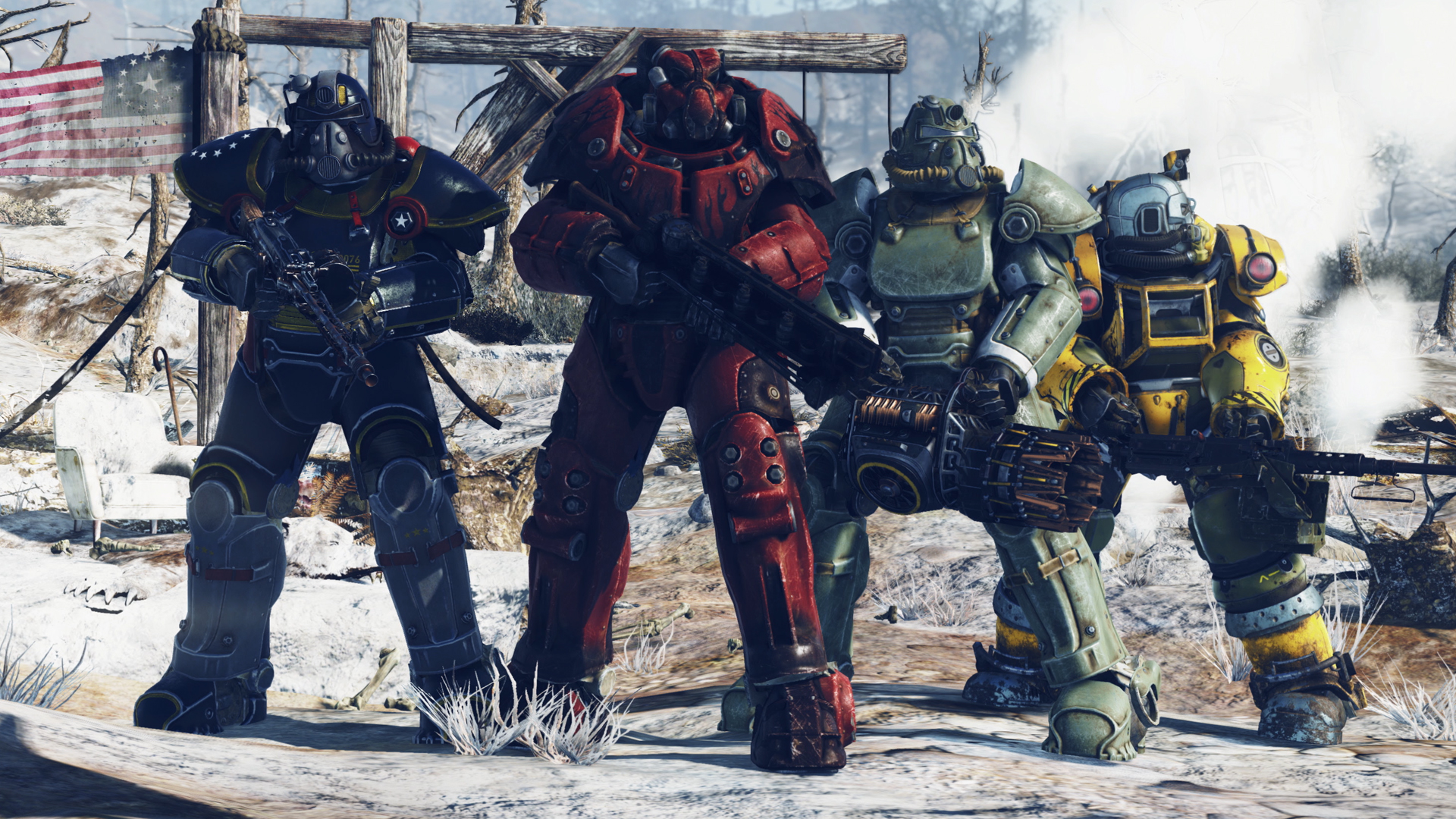
Up until very recently, for me at least, the biggest challenge standing in the way of unbounded excitement regarding Fallout 76 came down to the answering of a single question: Just what the hell even is Fallout 76?
Until Quakecon 2018, Fallout 76 had been a game defined by isolated, back-of-the-box bullet points without any real, coherent shape. We knew that it was a new Fallout. We knew that it was four-times bigger than Fallout 4. We knew that it was online, but was not an MMO. We knew that it would tell the story of the early Vault survivors venturing into the Wasteland for the first time, but that there would be no human NPCs, and that the game would take a different approach to storytelling. The specific, building block components of Fallout 76 were detailed early on. What was missing was the less glamorous but highly important design cement that would hold them all together as a cohesive experience.
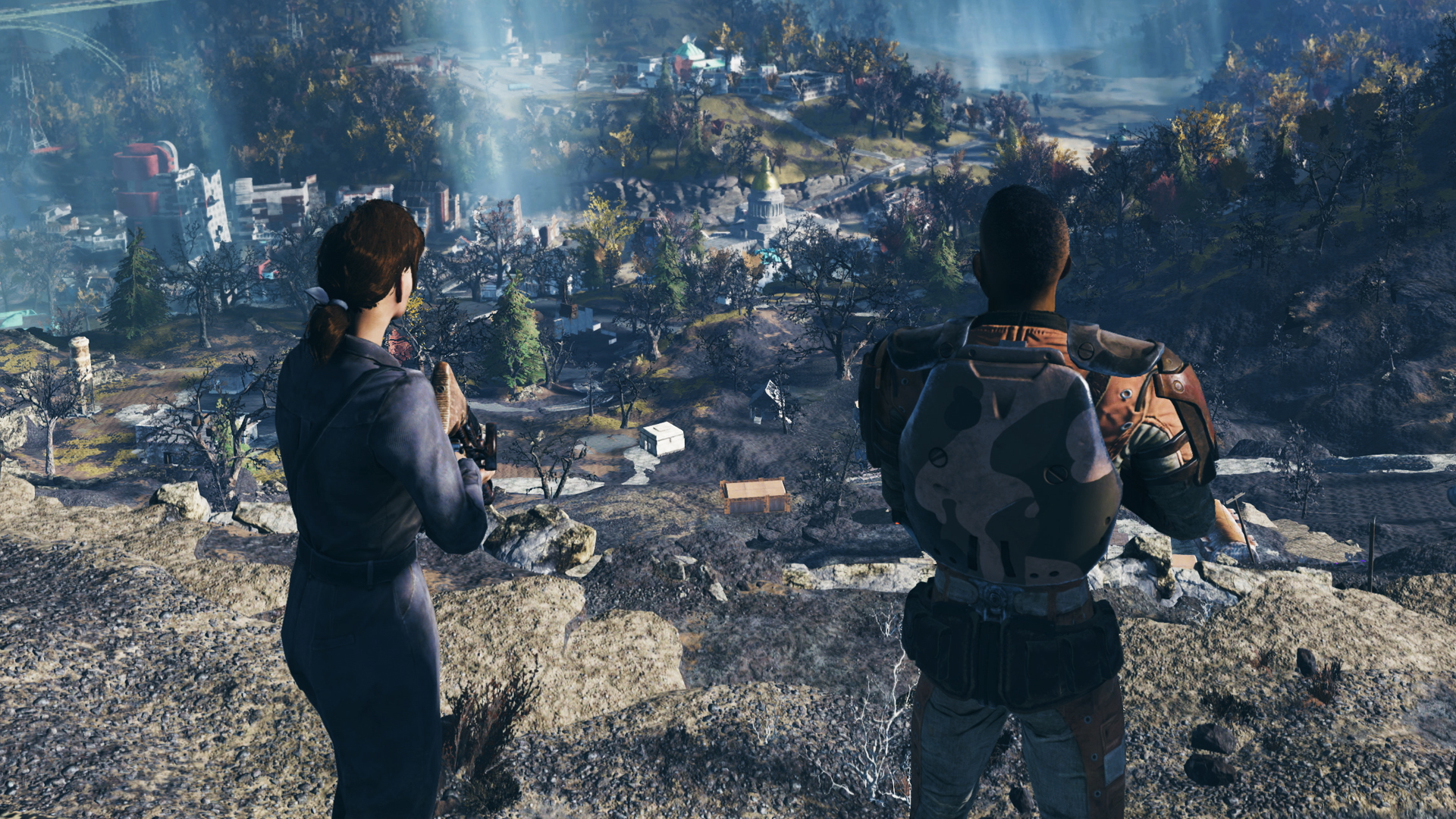
As such, that main question propagated a great deal more questions. Is there actually a narrative? Is this just a dynamic survival game with a Fallout skin? How the hell does VATS work in multiplayer? Aren’t PvP trolls going to ruin the role-playing experience? It’s been a confusing time. I’ve always liked the idea of 76. At the root of its appeal, a multiplayer Fallout game (ie. one that amplifies the brilliant, emergent weirdness that defines all of the series’ best moments, by adding other people) is something I can get behind wholeheartedly. But since the game’s announcement, we’ve only had a vague, theoretical appeal to get excited about.
Until last week. Sitting in Quakecon’s Fallout 76 panel, I found that slowly, steadily, Fallout 76 began to make a great deal of sense. Over the course of an hour, by reading between the lines of the game’s systems reveals, I managed to come up with an idea of the more holistic Fallout 76 experience, beyond its isolated features and mechanics. And I rather liked what I discovered.
At the core of it, this is still a Fallout game. It just feels like a Fallout game that, rather than dutifully trotting out the series’ joys and values in a traditional format, is deliberately breaking down their constituent parts into a fresher, more freeform, more manageable formulation. It’s almost a deconstructed Fallout game, if you will, delivering the same essence of exploration, ownership, character growth, dynamic, systemic gameplay weirdness, and pitch-black humour, but making the entire process lighter and free from hassle. It feels like a Fallout designed to offer endless new spins on its core gameplay over a long-term period, with quicker, more fluid tools for mixing things up. Imagine Fallout with the fluid sandbox philosophy of Destiny. That’s what it feels like at the moment.
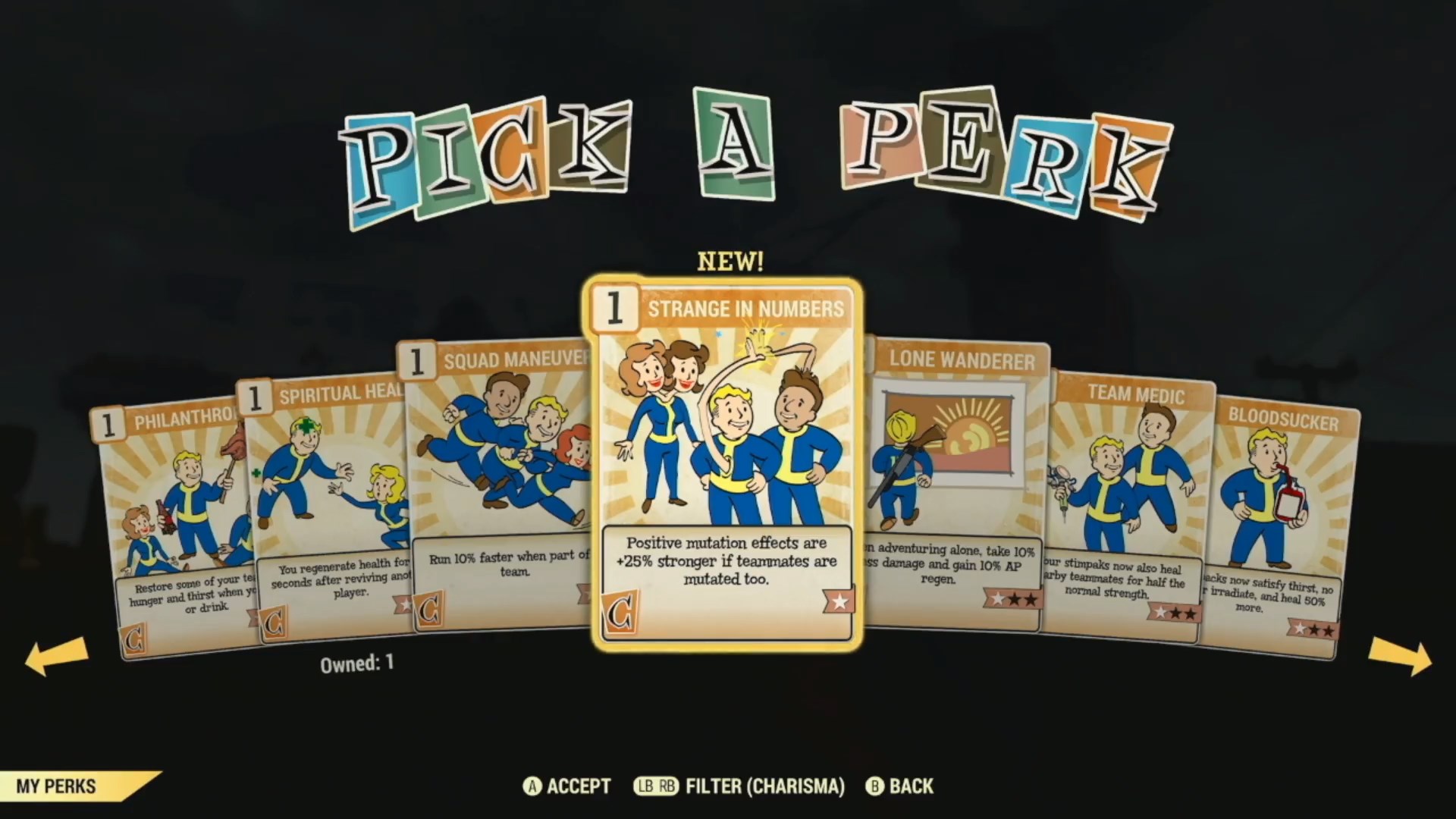
Take the new perk system, for instance. Let’s start with that, because it’s the first thing that sent me down this train of thought. Where previous Bethesda Game Studios RPGs sent character development down a relatively one-way path, with perks assignable to skill trees by way of perk points earned at level-up and locked in (relatively) permanently, Fallout 76 lets you redesign your character’s skills and purpose on the fly. Now, levelling up will give you perk points as before, to grow a resource pool shared between the branches of the series’ traditional S.P.E.C.I.A.L. skill tree, but perks themselves now come on cards, which can be reshuffled and swapped in and out whenever you fancy soft-rebooting your character.
While the perk points that govern the maximum potential strength of any given S.P.E.C.I.A.L. category seem to remain, the perks within those branches – aka. the things that really govern how you actually play the game – are now completely up in the air. And with Fallout 76 handing you a randomised pack of perk cards every few levels (complete with bubblegum and joke, not even kidding), this is a Fallout game that not only gives you the ability to rebuild your character whenever you want, but which actively encourages it. ‘Yeah, you might have used that build for a week’, it says, ‘but why not try this?’
Weekly digests, tales from the communities you love, and more
That’s a spirit only further emphasised by the fact that no part of you character’s physical make-up is now permanent either. Every element you can set up on the initial creation screen can be completely altered later on. All of this speaks to a Fallout that does not want you to stick to one character, with one story, for the entire time you play. This ever-present ability to semi-reset your all-purpose, Swiss Army protagonist, professes a Fallout that wants you to be free to try anything and everything for as long as you want. You’ll still have the freedom to role-play - the greatest joy of creative Fallout play is not going away - but now, if you get bored and want to role-play someone else entirely, the required changes are only a few clicks away.
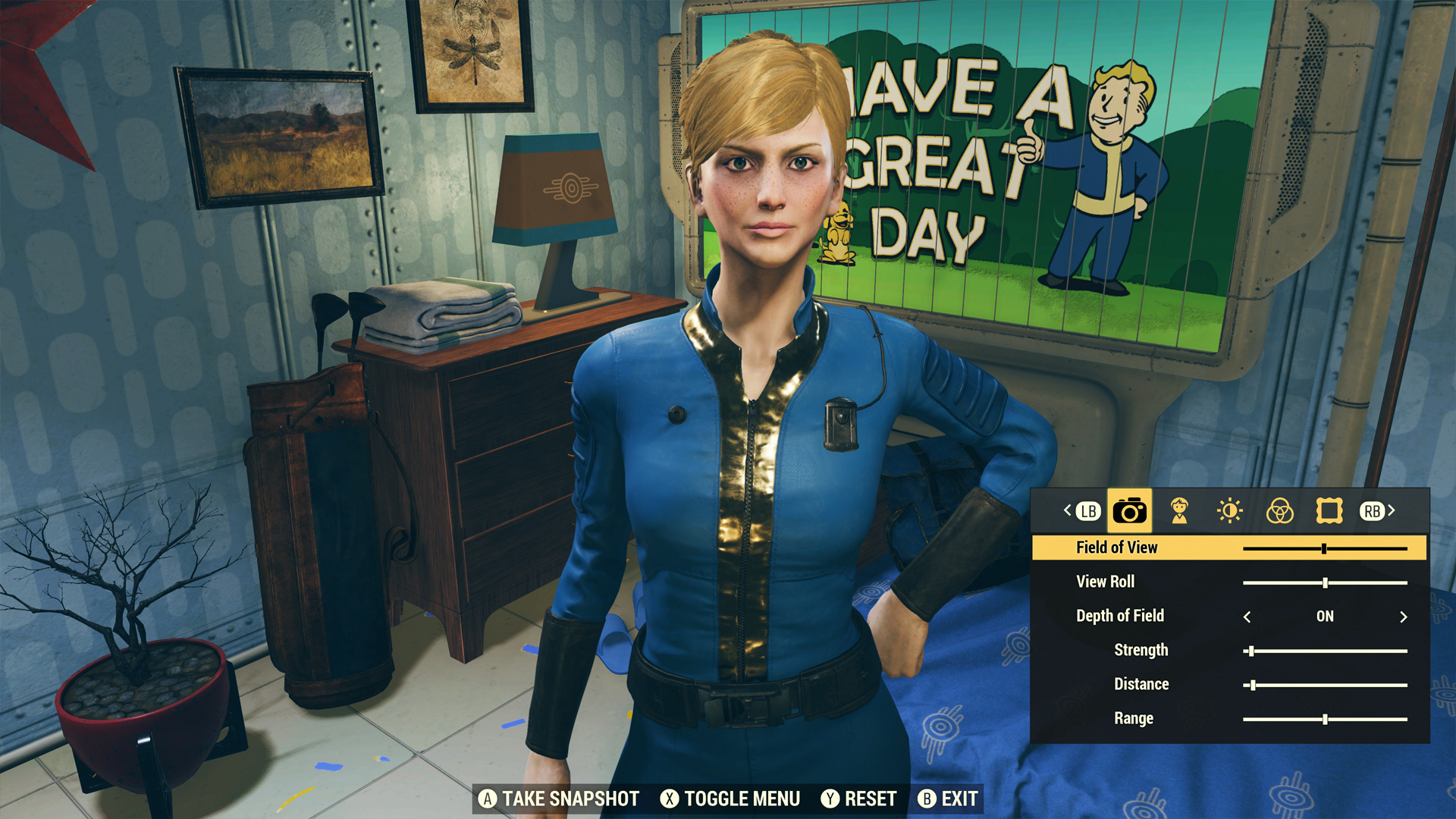
And all of this makes a great deal more sense when you factor in Fallout 76’s other big difference. It’s increasingly apparent that this isn’t a game perceived with the traditional Bethesda RPG life-cycle of ‘Launch, patches, and a year of DLC’. This is a game being talked about in terms an active, five-year lifespan. Maybe more.
This is a ‘games-as-service’ Fallout. Bethesda’s grab for a slice of the same pie shared by Destiny, WarFrame, Fortnite, and (soon) Anthem. The persistent, online ‘hobby’ game that isn’t an MMO, but which thrives on wrapping that same, long-term, career-style attachment around an ever-shifting set of expanding, eclectic live content and in-game events. The kind of game where you build a sense of permanence through long-term presence in a place that is always growing and evolving around you (in ways both big and small, long-term and temporary) and the emergent stories you share with friends along the way.
As such, it feels entirely sensible that Fallout 76 is being built with such moment-to-moment malleability in mind. Over the long-term of the game’s life, it needs to be an even more open-ended sandbox than Bethesda has delivered before, with a more open foundation for player evolution. To maintain the kind of long-term play a ‘games as service’ production like Fallout 76 will need, its gameplay needs to be easily iterative, for both developer and player. The fact that so much about your main character’s essence is switchable on the fly, that we’re no longer on a long, linear path to a concrete end-point (player power will cap out at level 50, but new perk cards will be available forever) speaks to a Fallout game whose systemic malleability is now designed to thrive in immediate, in-the-moment play as well as over the course of the bigger picture.
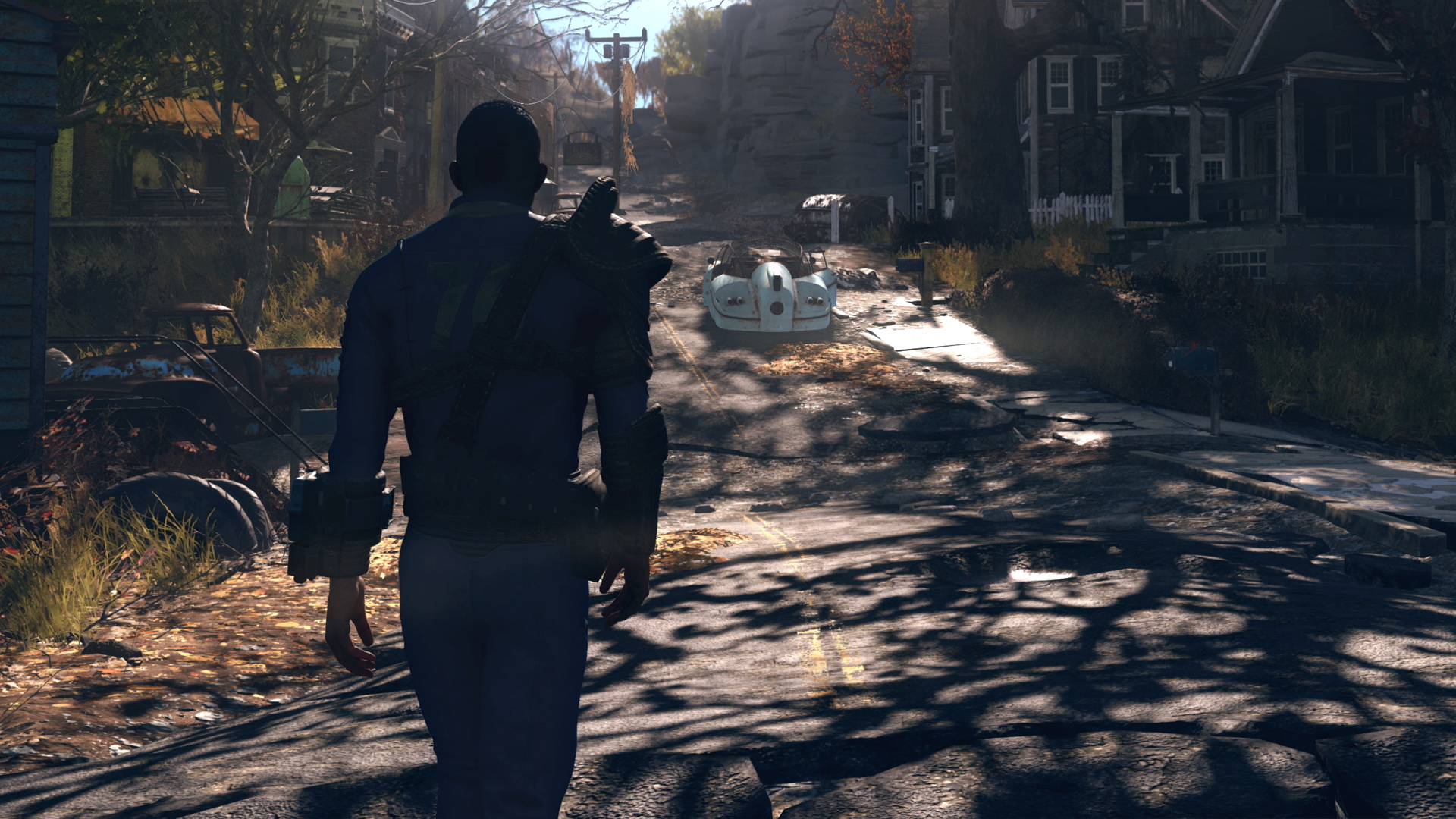
Just as a particular Destiny raid boss or a challenging new seasonal event will see Guardians quickly swapping in different armour and weapons with different perks, in order to effectively create a new character class on the fly, Wasteland survivors will soon show a similar kind of versatility. And that card system just screams of a set-up designed for ease of expansion. With the facility to drop a continual influx of new perk cards into Fallout 76’s mix-and-match ecosystem, Bethesda can continually update and reimagine its players’ relationship with the West Virginian wilderness, just as Destiny does for its own players with new Exotic gear. This new system may initially seem to lack the sense of weighty investment seen in previous Bethesda RPGs, but the rigidity of those older systems just couldn’t support the long-term vitality and dynamic growth that Fallout 76’s world and its players are going to require.
Heck, the new blueprints system, which allows you pretty much copy-and-paste any settlement you build to any area of the map (in case of destruction, or just fancying a new view) only further emphasises this new spirit of productive impermanence. The more freedom that players have to rework their own experience, the more freedom that Bethesda Game Studios will have to deliver extravagant, long-tail content for years after release, without being restricted by worries over who’s capable of what, and whether or not they have friends to play with to fill the gaps in their own skillset.
And let’s face it, more than anything else, the more agency that Fallout’s players and developers have - the more new directions in which they can evolve the game and its world experience together - the weirder Fallout can be. And it’s a big damn liar who says that’s ever anything but a very good thing.



